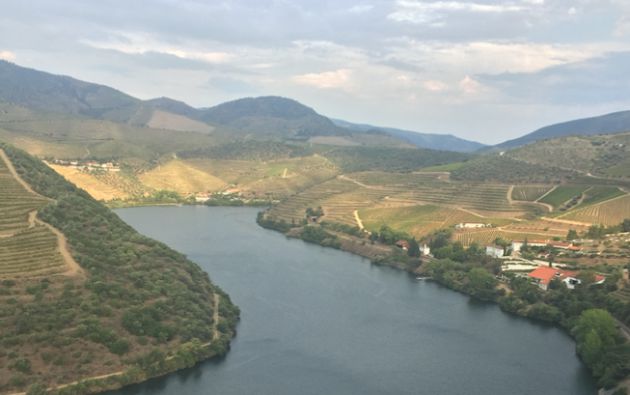
Douro harvest delivers quality on back of “absurdly low” yields
Following a year of challenging weather extremes, the Douro’s 2018 harvest has given up some “excellent Ports and Douro wines” according to Symington Family Estate’s annual harvest report.
Compiled by family member Paul Symington, the report highlighted severe challenges to the growers in the region early in the season, with heavy rains through Spring delivering twice the average rainfall, culminating in a hail-spiked torrent on 28 May that caused severe damage across many vineyards.
“Our pleading to the weather gods was clearly overdone as the nearly two-year ‘seca’ ended abruptly with heavy rains in March, April and May,” Symington reported.
The wet weather and final storm, coming during the delicate bud break time (which was three weeks late due to the wet weather), contributed to a vintage suffering reduction in yields of over 25% on the norm for most growers, with Symington reporting that “many of our vineyards produc[ed] 40% less than average”.
“The vineyards that survived the strange and challenging lead-in to the final furlong were looking magnificent through a hot August, clearly benefiting from good moisture in the soil,” Symington added.
More normal weather patterns arrived in July, though that hot August delivered temperatures 3.4% above the monthly average, with fine weather through October relieving growers fears and delivering a very low yield but good quality final harvest.
“This was the second year in a row with dramatically low production and there was a desperate scramble for grapes, particularly from those with few vineyards,’ wrote Symington.
“Prices for Douro wine grapes rocketed upwards, which is probably a very good thing, certainly for the farmers who have had a torrid few years.”
The vintage looks set to be marked by “wonderful colour and particularly lifted aromas”, including the Touriga Franca which - like its more aromatically inclinde stable-mates - this year responded well to the final hot ripening period.
Symington also made a call for the tough economics of much Douro grape growing and wine production to be addressed to protect the future of the region and Port wine industry.
“For too long, too many people have viewed the Douro as a mysterious, remote but beautiful time warp where Port and Douro wines can be made cheaply, dependent on a distorted regulatory system, low-wages and plentiful labour,” he argued.
“The last two harvests have shown that change is imperative if the unique Port and Douro wines from our low-yielding indigenous vines and our extraordinary schist soils, can continue to be made.”





